"The return home of this son of the land was well worth it," said the mayor of Lagos at the inauguration, this Friday, in the late afternoon, of the Congelagos factory, which is dedicated to the processing and freezing of fish and shellfish and is presented as the largest unit of its kind in the Iberian Peninsula. The occasion even featured the Minister of the Sea and the Secretary of State for Fisheries.
The son of the land who returns is businessman Nuno Battaglia, who spent his childhood and adolescence in Lagos, spending, as he confessed, «more time in the water than in the classrooms». Afterwards, Nuno Battaglia built his career in the United States of America, where he lived for 27 years.
Fulfilling the American dream, he returned to Portugal, with his partners Jorge Grave (childhood and diving friend) and António Castel-Branco, to invest 16 million euros in this unit, ««one of the most advanced in the process of transformation and freezing fish worldwide'.
As this investment is “based on 360-degree sustainability”, it will not only benefit the Battaglia Group, but also “shipowners and fishermen”. "Safe and responsible fishing starts with safe and responsible companies", guaranteed the entrepreneur.
With the capacity to process 300 tons of fish a day and store 5400 tons of frozen foods, Congelagos sells the highest quality fish and shellfish from Portugal, Madeira and the Azores, in particular undervalued species such as mackerel and horse mackerel , which so far reach very low prices.
But if in Portugal nobody really cares about mackerel and horse mackerel – despite the Docapesca campaigns – how do you value these species? Is there a market for them?
Nuno Battaglia replied: «the market is global: these species, namely mackerel and horse mackerel, are highly valued in global markets, in Europe, Africa, Asia, America. Although they are not highly valued in Portugal, they are valued elsewhere and that is our bet».
They are «markets good gourmet food, who value these products and this will also allow us to increase the price paid to fishermen and shipowners».
Congelagos will thus have an export vocation, directing around 80% of its production to countries such as Spain, United Kingdom, Malta, Croatia and Turkey. In 2019, it estimates the export of 15 thousand tons of horse mackerel and mackerel, coming only from national production.
Mackerel and horse mackerel fishing season starts in full
The Congelagos factory, located in Odiáxere, almost on the edge of the EN125, has been working for a few months, but still at half gas, so far dedicated only to producing bait for fishing.
But soon will come into cruising speed: «we are waiting for the beginning of the capture season for these small pelagics, mackerel and horse mackerel, which will start now at the end of April, beginning of May».
The unit will process other species throughout the year, since, underlined the businessman, "we expect to operate 12 months a year".
And where will all this fish come from? Jorge Grave, one of the company's partners, explained to journalists that, although there are already agreements with shipowners so that fish and shellfish (octopus) can come from all over the country, «the greatest effort will be concentrated from Sesimbra to the Algarve» . «It's closer, the fish will arrive with higher quality». And quality is at the heart of the entire operation.
The construction of the building, which has a construction area of 7500 square meters, on two floors, and is equipped with the most modern and efficient machinery and equipment, took about seven months.
“Because there is no industrial infrastructure in this area, we had to increase the installed power on the medium voltage lines,” said Nuno Battaglia. But «everything was done in time record, we had fantastic support from the entities that regulate us and the fact is that we managed to set up this factory in a very short period».
However, the official opening was even announced for last August, but later it did not happen. Why? "We had a delay in installing some equipment, which was not up to us, and we also had a long licensing process."
In the midst of all this, there were many good surprises. "One of the risks we identified at the beginning of this project was the lack of manpower, especially as we were opening in August, at the height of summer."
But what happened “was a huge surprise: we had thousands of candidates, for the dozens of positions we had open”. So, added Nuno Battaglia, “we had the chance to select a fantastic team. I've worked in many places and I've never had a team as good as this one».
And why so many people to apply? It was the Minister of the Sea herself who answered the journalists' question: “Because it's an excellent job, where they are treated well. It has to do with qualifications, working conditions, salaries and stability». It is a sector that «may not be as competitive with the peak remuneration of other activities, but that has a stability that does not exist in others», explained Minister Ana Paula Vitorino.
Nuno Battaglia, on his return to Lagos, has other investments in progress. One of them has precisely to do with its vision of sustainability, as it involves a “very strong investment in aquaculture, which is an area in which we believe Portugal can be a leader and which has enormous potential for growth. We have already made a first investment in an aquaculture company in the Ria de Alvor», in the Vale da Lama area, in the municipality of Lagos. There, sea bream and sea bass are produced, and “the production of other species” is also being studied.
The Battaglia Group also has investments, also in the region, «in the area of tourism and real estate development».
Sustainability is the key to the business
As entrepreneurs, Nuno Battaglia and his partners Jorge Grave and António Castel-Branco saw undervalued fish species as a business opportunity. But it's not just dollar signs they're thinking about. This “360° sustainability” is all about investment.
In his speech, Nuno Battaglia stressed several times that mackerel and horse mackerel are also species without environmental problems: mackerel is so abundant that it doesn't even have a fishing quota, while the horse mackerel quota “is never reached”.
The Minister of the Sea highlighted precisely this aspect of valuing endogenous resources, saying that “it is not by chance that, in this undertaking, they are betting on species such as mackerel, horse mackerel and octopus, species which, from an environmental point of view, do not we have problems».
And why are Portuguese shipowners and fishermen no longer fishing for mackerel and mackerel? "Due to the price", which is low, much lower than sardines, explained the minister.
The businessman, by the way, had already highlighted this “great imbalance”, with “sardines sold eight to ten times more expensive than mackerel or mackerel”. This, he explained, creates "very great pressure on sardine capture" and generates little interest in the other two species.
However, considering that these are species that compete for the same resources and that mackerel can even be a sardine predator, for more measures to manage the stock In any case, “the sardine stock will probably not recover without a better balance in the capture of all these species”, defended the businessman.
Minister Ana Paula Vitorino considered this way of looking at the issue as “clairvoyance” and “commitment to the environment”.
It is because, recalled the government official, “no business today can survive if it does not have sustainability criteria. Nothing can be done against nature, against natural resources».
But sustainability is not just environmental, it's also social. And this involves not only the company's relationship with shipowners and fishermen – and its commitment to increasing the prices paid for undervalued species –, but also the creation of quality jobs.
As Minister Ana Paula Vitorino underlined, «it's not just about creating jobs, it's about creating quality jobs. There are 75 direct jobs with high qualifications».
Maria Joaquina Matos, Mayor of Lagos, also highlighted this aspect, recalling that Congelagos creates “more permanent jobs, which the region so badly needs to fight seasonality”
Being responsible for the Ministry of the Sea, Minister Ana Paula Vitorino also spoke of the growth of the so-called blue economy, whose weight in the Portuguese economy as a whole rose from 2,5% to the current 4%.
And he welcomed the fact that Congelagos' investment was made in the Algarve and not in other areas that normally attract large projects.
“We have to have alternatives for people, in terms of employment. Tourism is extremely important, but no region can be held hostage to just one economic activity». Therefore, this investment in the industry linked to the economy of the sea was cherished.
Furthermore, the minister underlined, because it is a project where “private investment is much higher than public investment”. Of the 16 million investment, 6,5 million are covered by the Mar2020 operational program. Even at this level, Congelagos is an example.
There are many reasons for the mayor to say, in her speech, that this was “a very good moment for Lagos”. «It is not every day that we witness the opening of a factory of this size, in terms of investment, innovation, production capacity and entrepreneurship». After recalling the county's economic history, Maria Joaquina Matos argued that this unit means the «resumption of an industry linked to the sea, something that is in Lagos' DNA».
Photos: Elisabete Rodrigues | Sul Informação
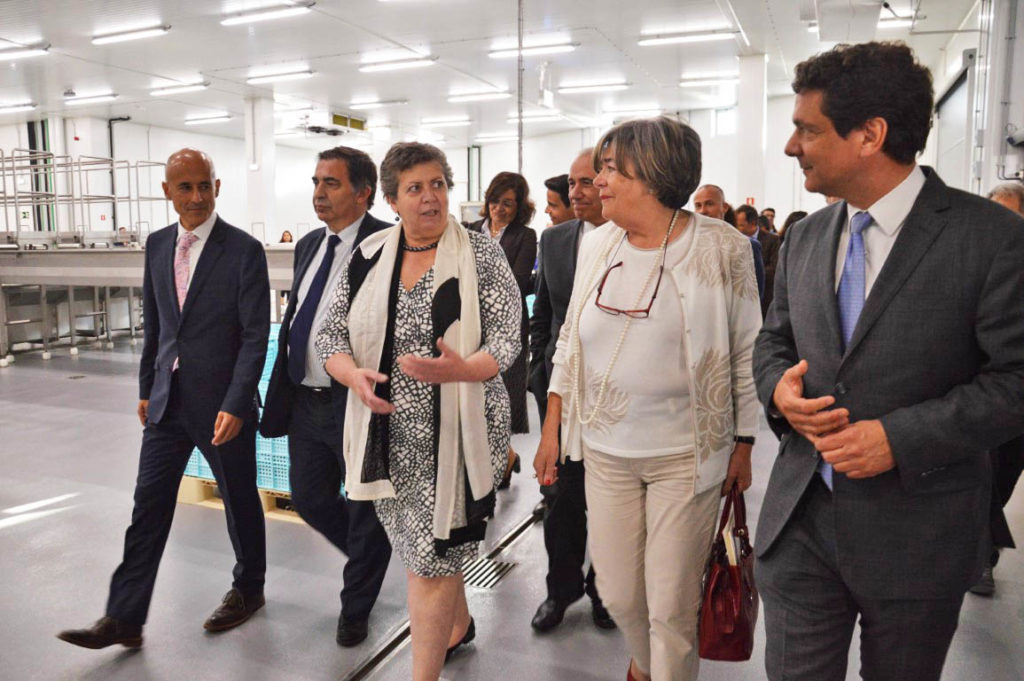
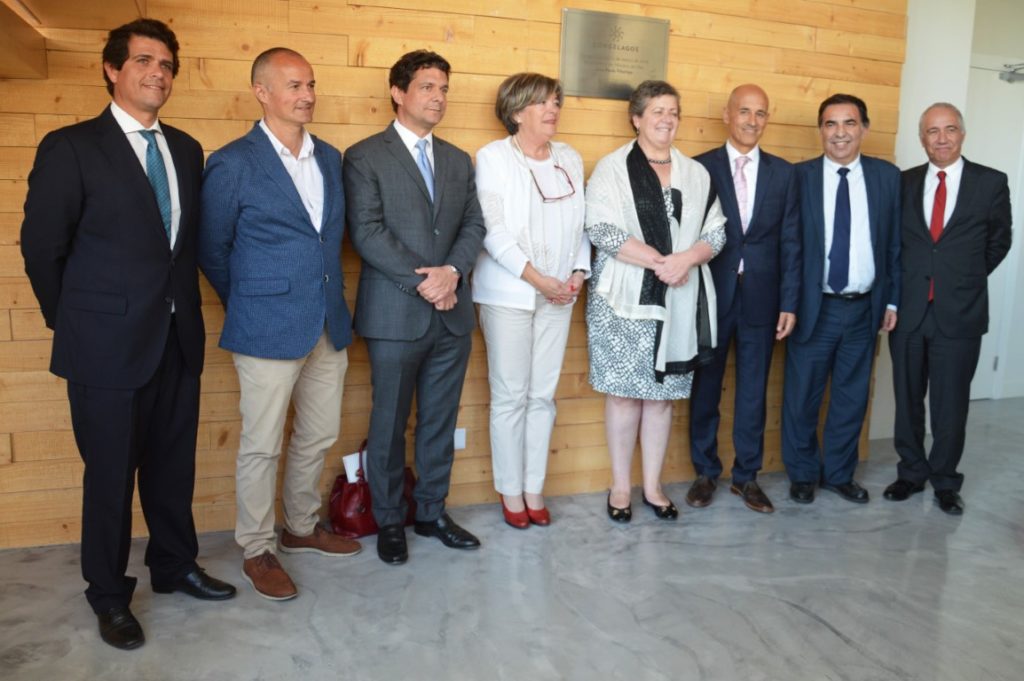
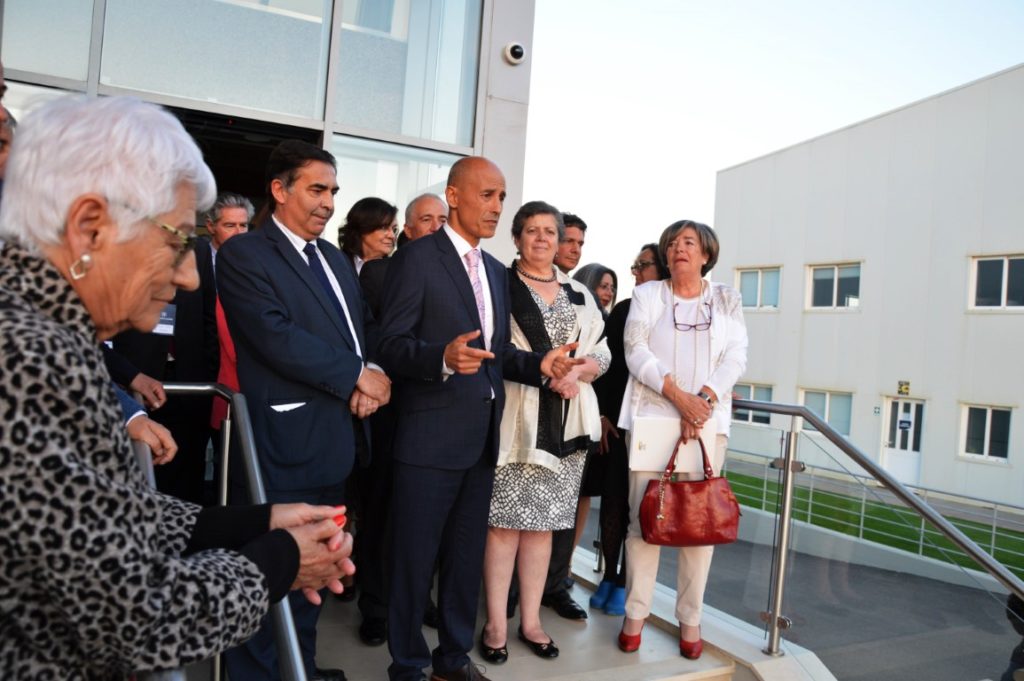
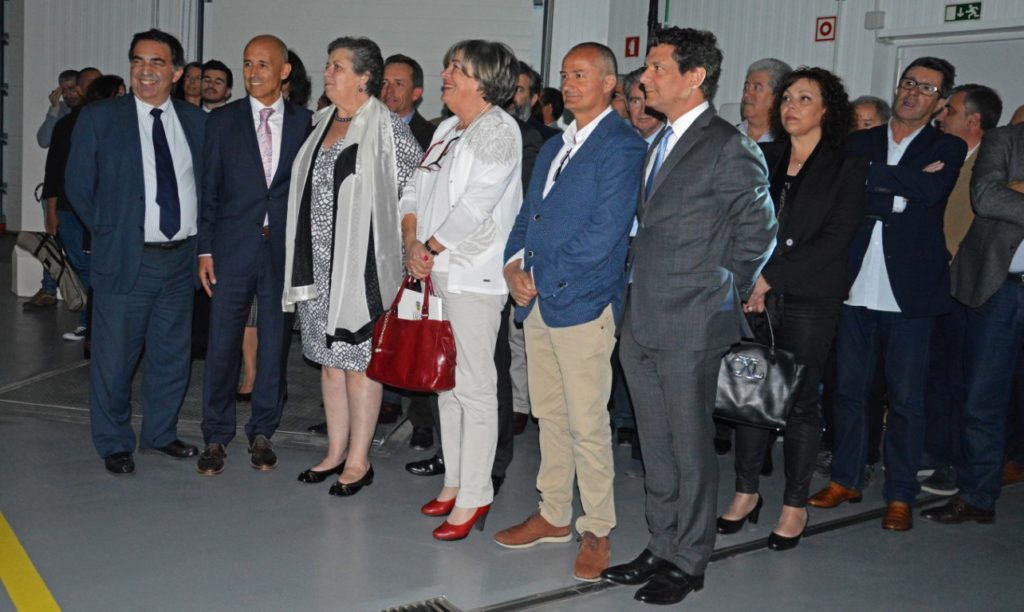
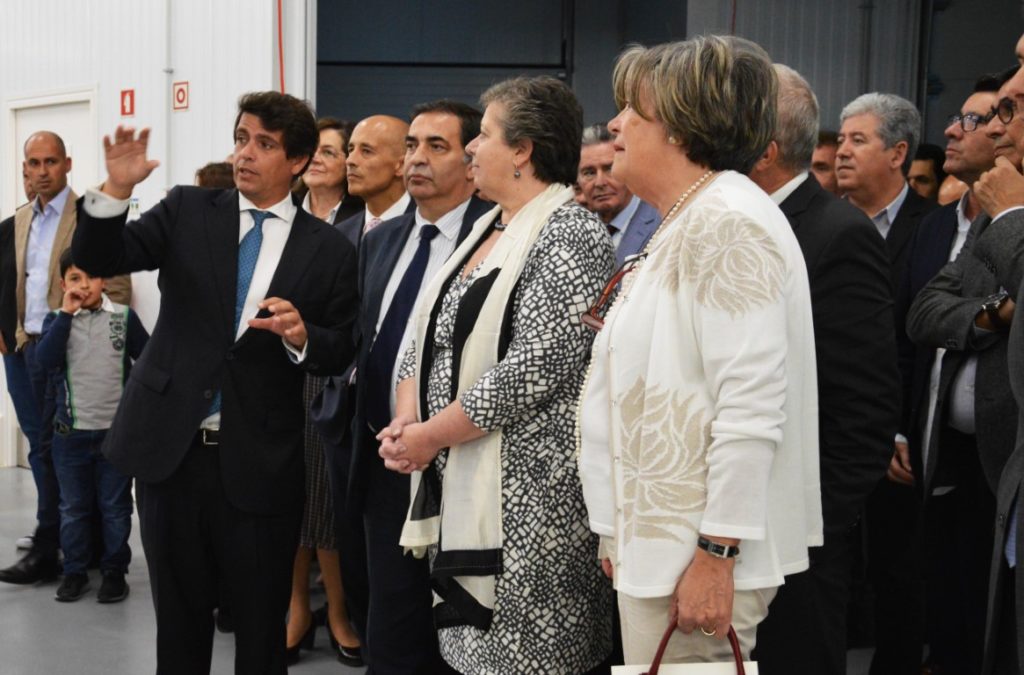
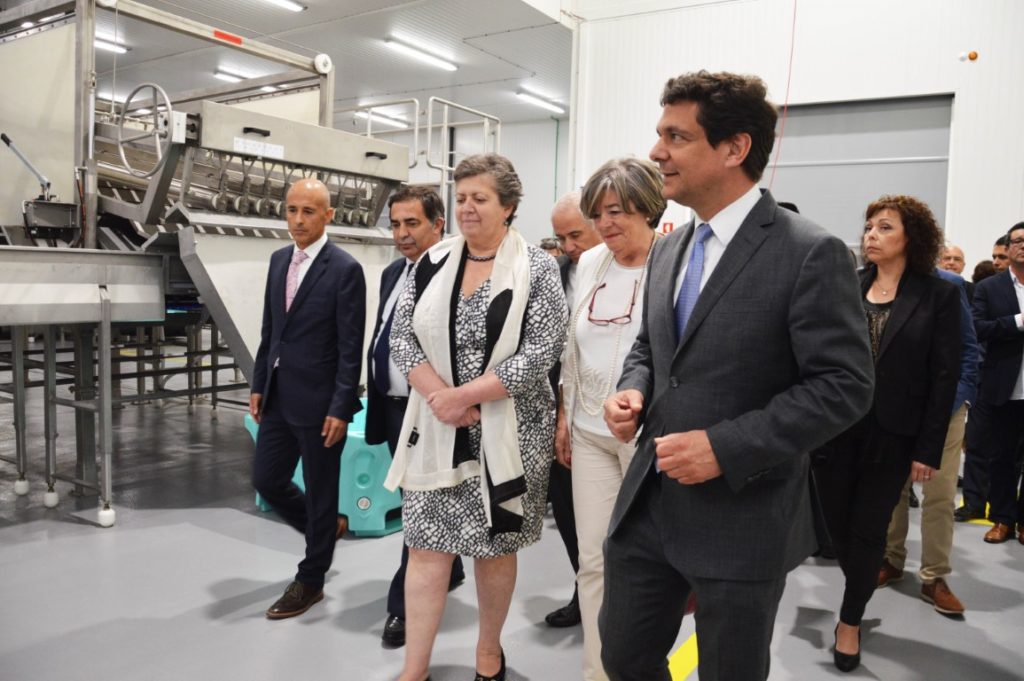
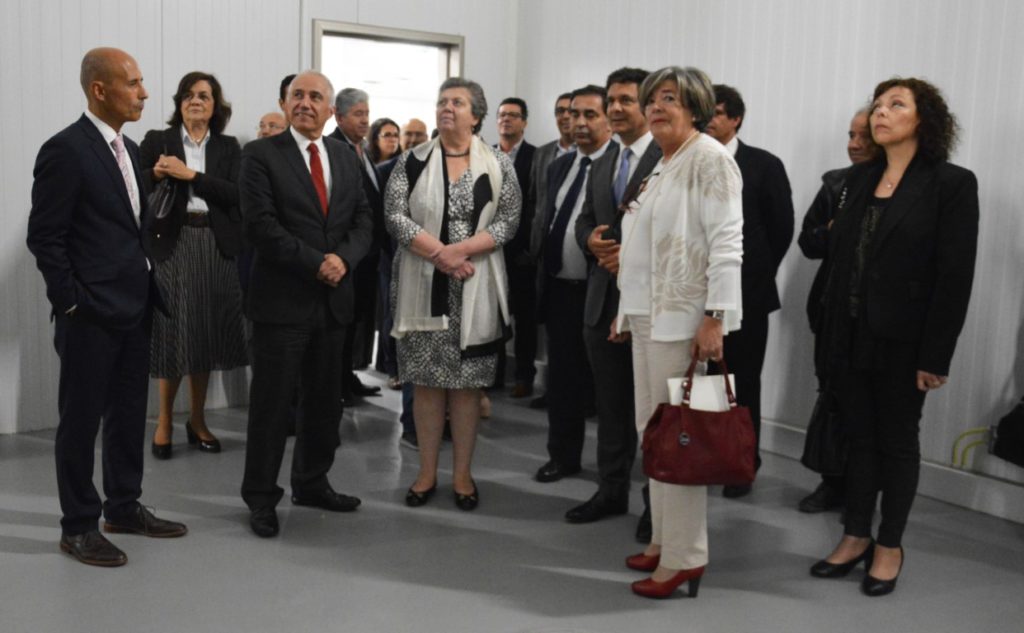
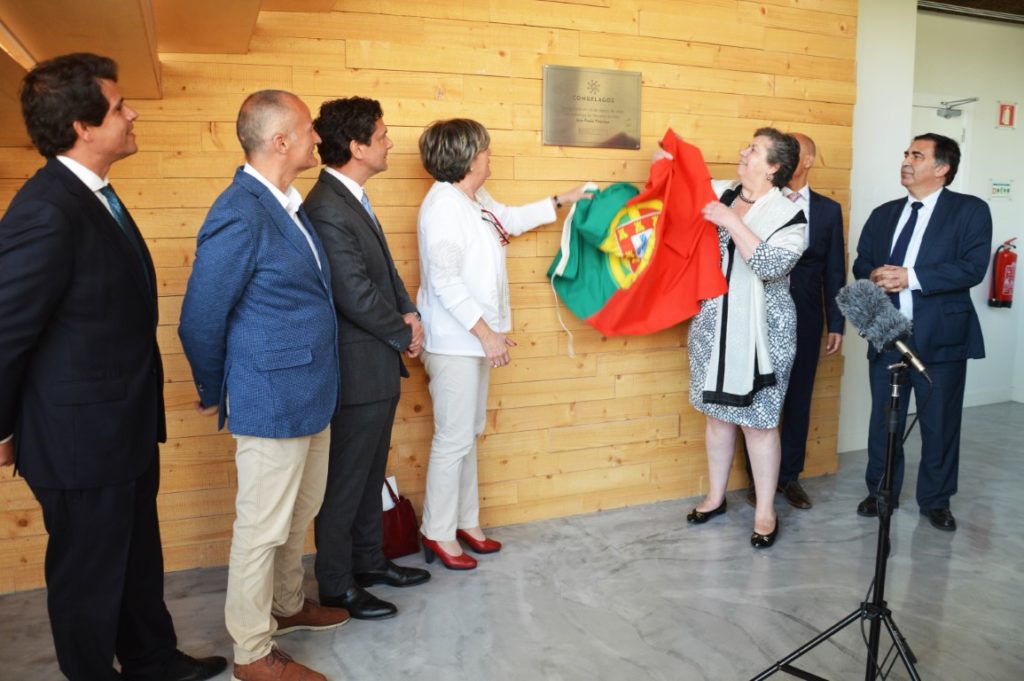
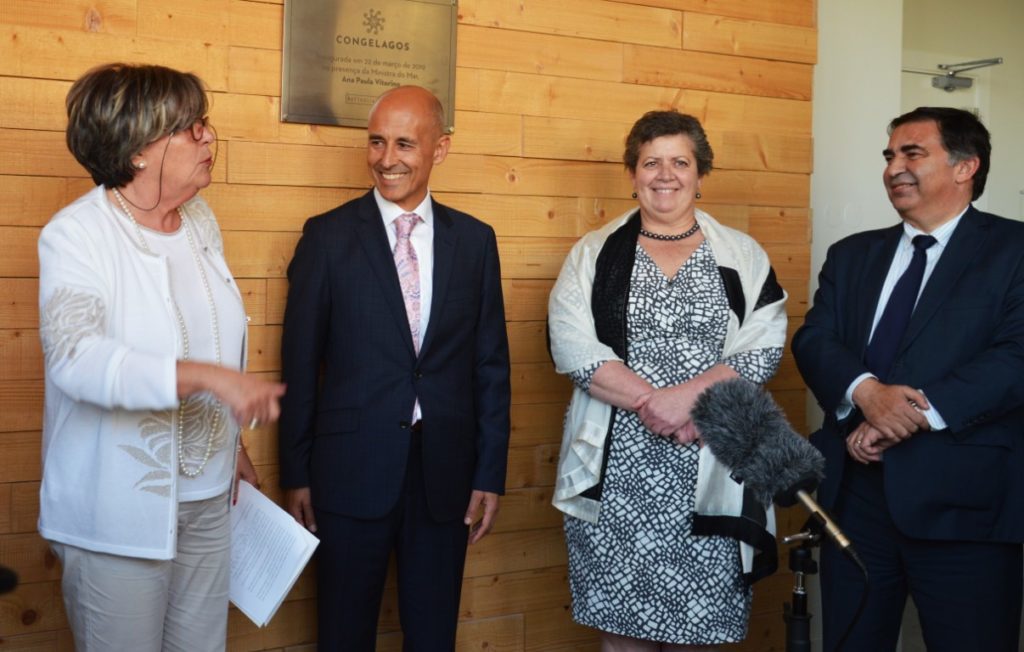
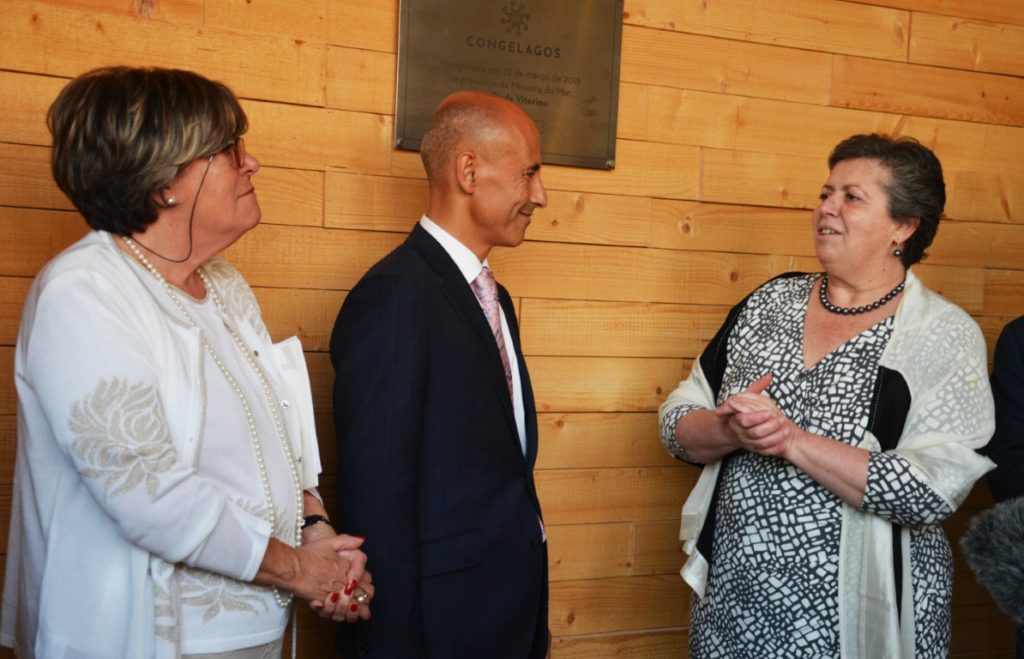
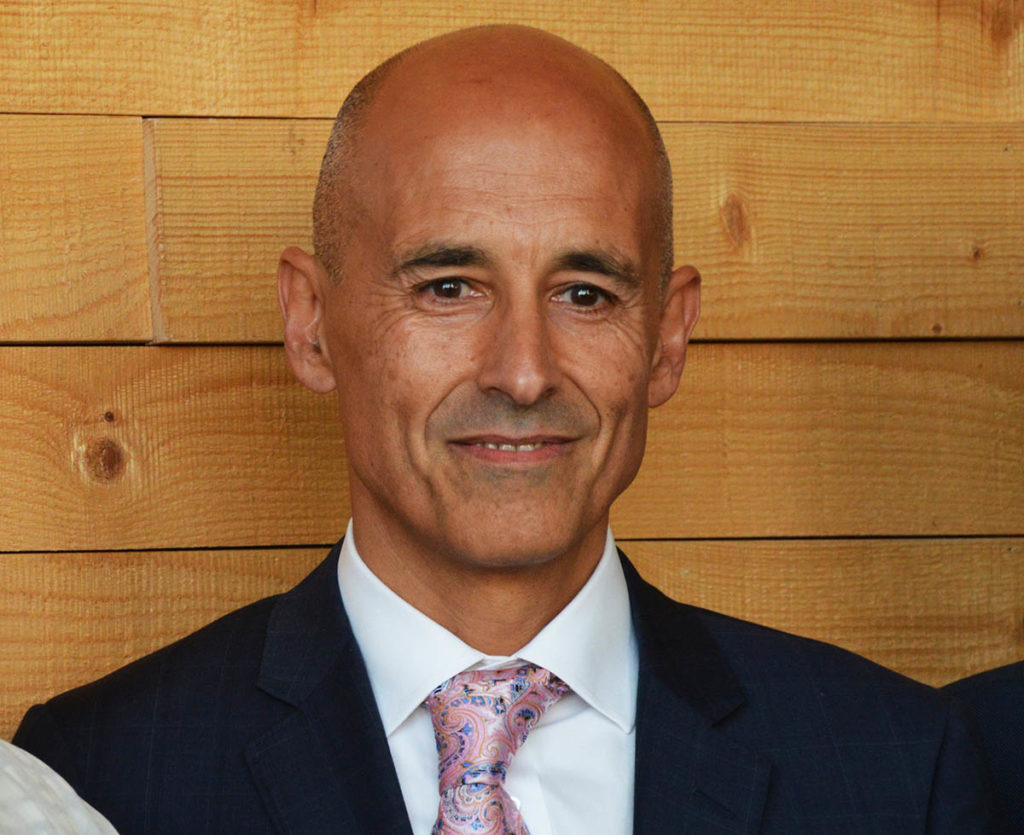
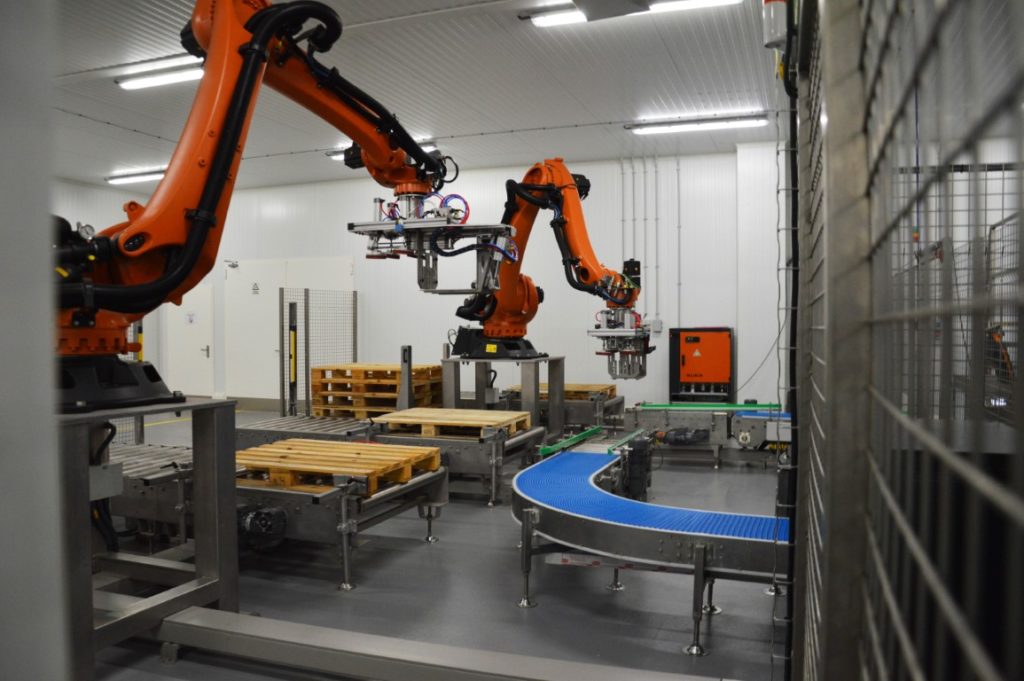
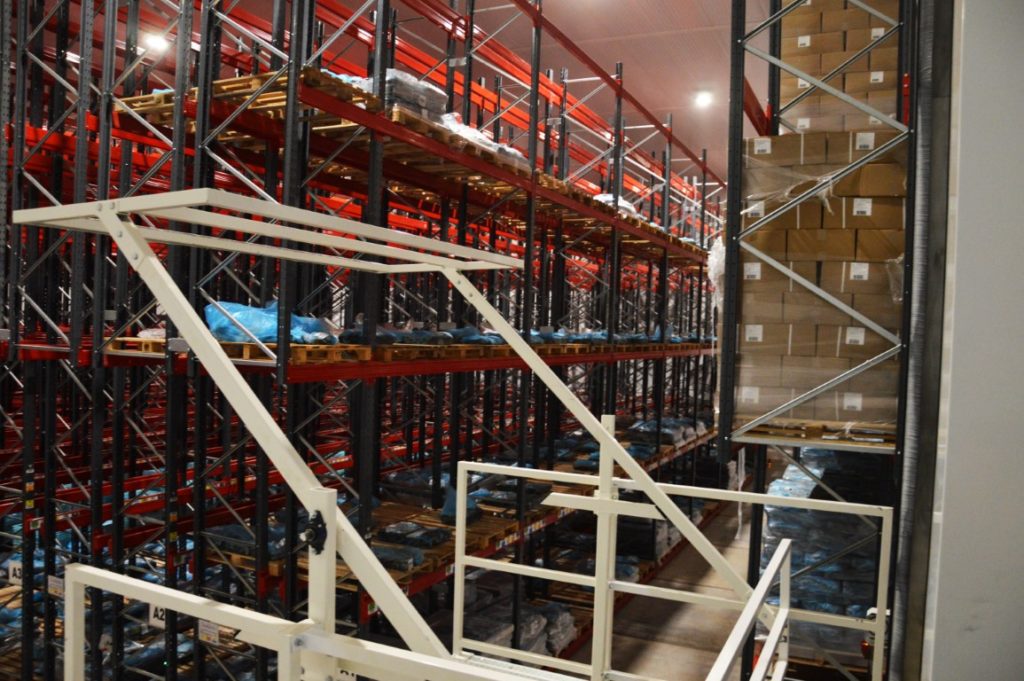
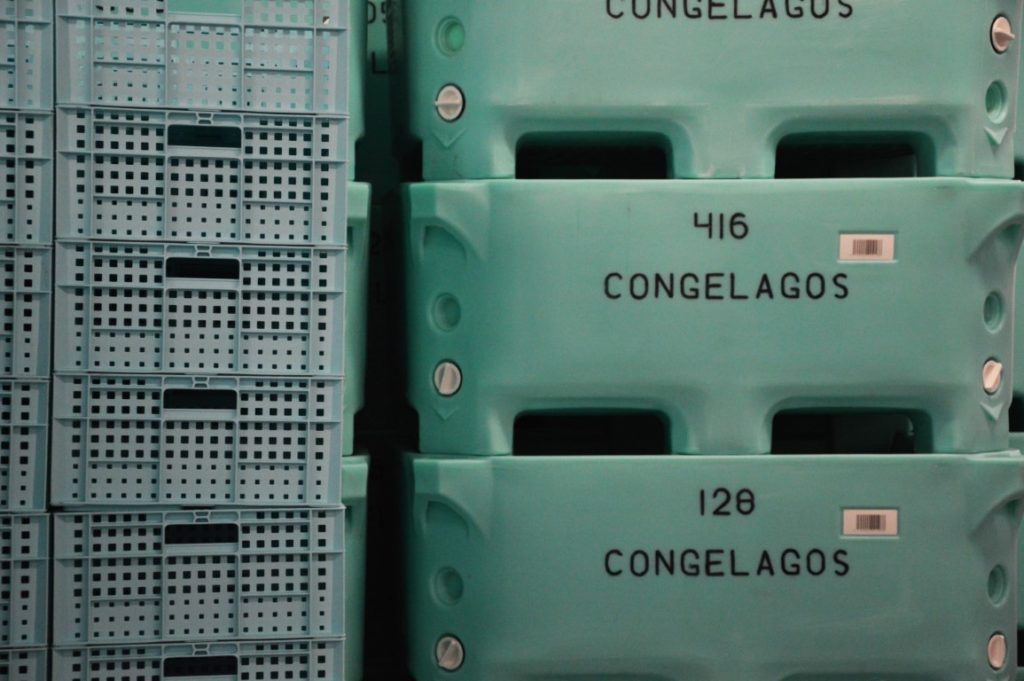
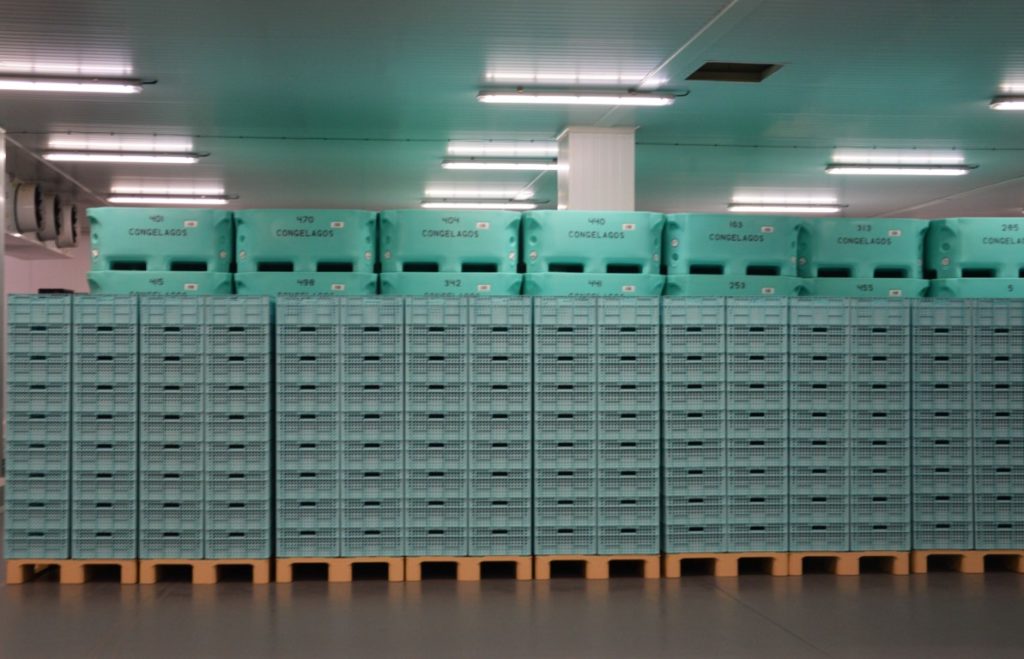
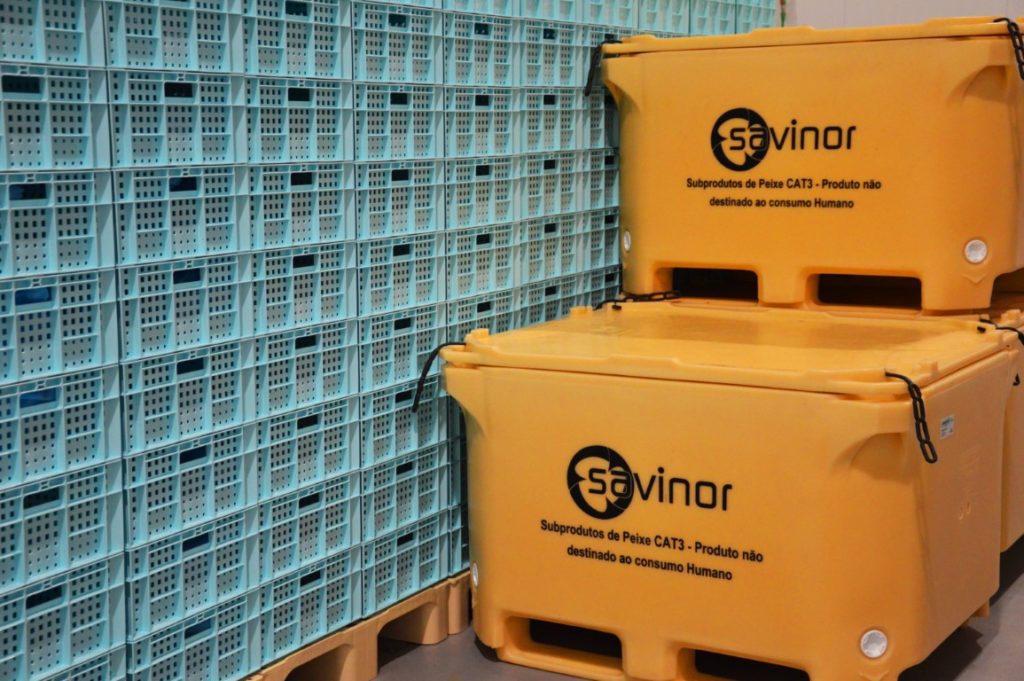
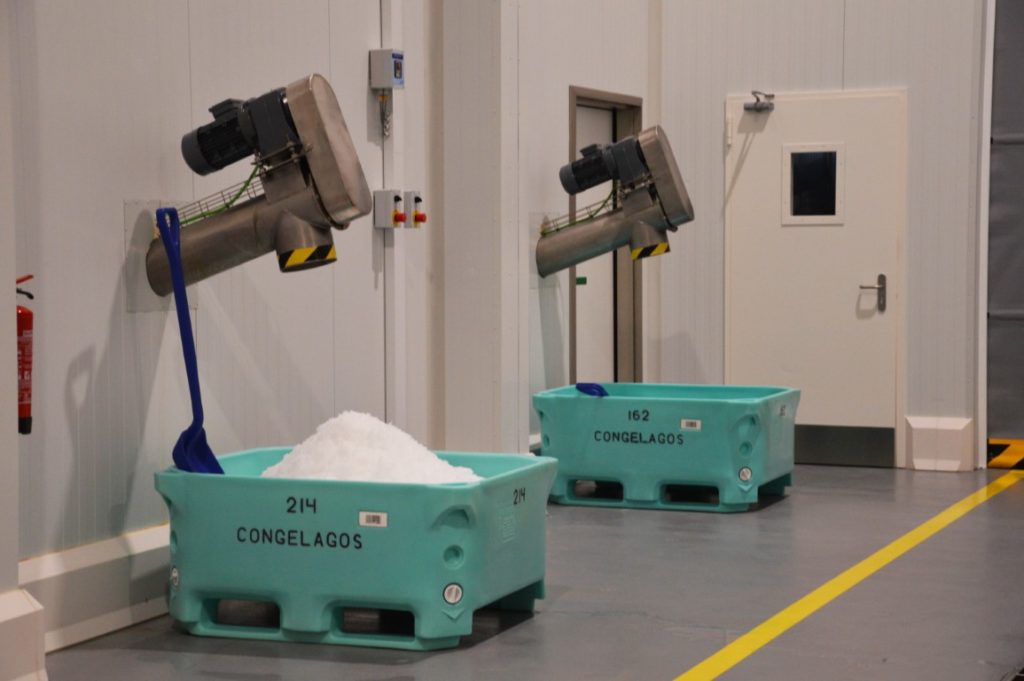


















Comments